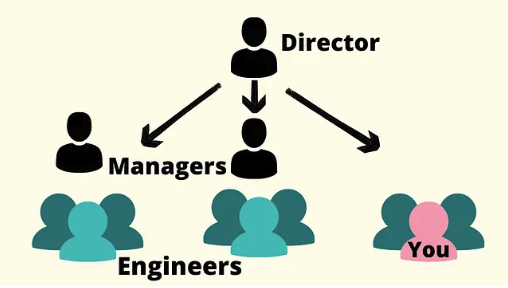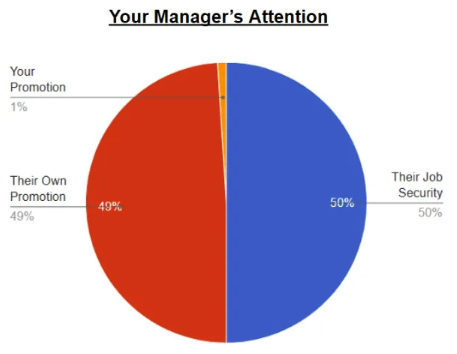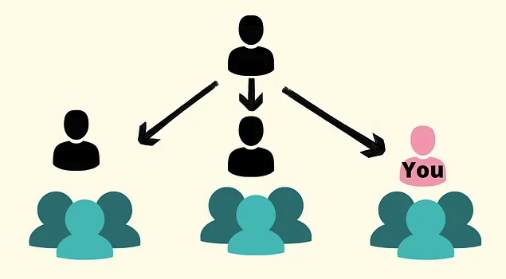Engineers often try to get promoted by focusing on their technical skills. Like writing more unit tests. Or learning a new programming language.
After all, the best engineers get promoted. Right?
Being good at your job is different than advancing in your career. The people who get stuck only do what they’re told — and then wonder why they’re not getting anywhere.
The people who get promoted manage their careers like it’s a separate job. They don’t wait for opportunities to happen. They make them happen.
In this article, I discuss the 3 most common career mistakes that cause engineers to get passed up for promotion.
None of them involve getting better at your current job.
A Lesson from American Politics
When a new US president gets elected, their first task is to hire the right people for their team. They have to pick their advisors and choose who to nominate to their cabinet.
It’s during these political transitions that careers get made. When Joe Biden won the 2020 election, many politicians made huge strides in their political careers when he nominated them to his administration.

Kamala Harris (VP) and Pete Buttigieg (Transportation Secretary) both got promoted after Biden was elected.
These politicians got promoted when a political re-org happened. You have to pay attention when a corporate re-org happens. That’s when you have the highest chance of getting promoted.
Promotions Happen During Corporate Re-Orgs
Just like in political transitions, departments get axed and new teams get created during corporate re-orgs.
This paves the way for roles to open up — and that’s your chance to move up.
You have to imagine ways that you can fit in this new org that align with your career goals. Then propose it.
The key is to find win-win situations where you:
- advance the goals of leadership
- do it in a way that aligns with your career goals
Don’t make the mistake I made, where I ignored all the re-org emails that upper-management sent at Netflix. “If it doesn’t help me work faster, I don’t care,” I thought.
Pay close attention to shifts in the team structure, because that could be your chance to get your dream role.
Case Study: Spot the Promotion Opportunity
Imagine a team where a director splits their team into 3 squads under them.
2 squads have a manager.
1 squad has engineers who report straight to the director.

Can you spot the promotion opportunity?
Right now the director has too much on their plate.
They have 2 managers + 3 engineers to manage = 5 people to manage. They have to play double duty — first as an engineering manager for the 3 engineers, and second as a director for the two other managers.
If you’re in this org, this is the perfect time to become a manager. Ask the director if you could manage this 3rd squad. If you became a manager, everyone benefits:
- the director cuts their reports from 5 to 3
- the manager-less team has more direction
- you advance in your career
More opportunities to get a promotion can open up if there is a further re-org in this team. If:
- one of the squads splits further
- a new squad gets created
- they will need new managers to manage those squads.
And since there are 15 engineers now, you could make a case for a TPM/PM to manage all the infrastructure on this team as well.

More roles created as the team expands.
I’ve noticed while working at Netflix that many of my coworkers’ careers were made during re-orgs. My previous boss got promoted when the team split into 4. He raised his hand to manage one of the squads and got the job.
Another re-org happened at Netflix where they moved the VP of Product into another org. He laid off the old product team and new engineering teams emerged.
A coworker of mine saw this opportunity to ask if she could manage one of the new engineering teams. Now she has 10 engineers reporting to her.
Re-orgs are opportunities. Pay close attention to org structure, and try to find ways that you could fit in a higher role when a new leader comes in.
Collecting the Wrong Experience
Another career mistake involves trying to collect more experience. “Only after I get 1 more certificate,” they say. “Then I’ll be ready to get promoted!”
The problem with collecting more experience is that the skills required to get promoted to the next job are entirely different than the skills to be a superstar at your current job.
You need to learn the skills to operate at the next level, not to operate better at your current one.
So most people are learning the wrong set of skills that won’t help them get promoted.

Some people collect experience like baseball cards
Case Study: Entry-Level vs Principal Engineers
I talked to a friend recently who was starting their career in big tech. They wanted to move up the engineering ladder and asked what it would take to become a principal engineer.
They stayed late at work often and worked weekends because they wanted to get promoted faster. By their logic, working more meant they could crank out more features and advance in their careers faster.
I guarantee this will not get them promoted.

Taking care of your health is taking care of your career.
What my friend doesn’t understand is that principal engineers aren’t SDE 1’s on steroids.
It’s not about cranking more features out — “the intern cranks out one feature per day, but the principal engineer cranks out a dozen.” The principal engineer operates on an entirely different level.
SDE 1’s and interns are usually given small, independent tasks. Building features, writing test — things that they can do in isolation from the rest of the team.
As you move up the ladder, you’re tasked less with completing individual tasks, but helping other engineers move faster. A principal engineer helps the entire company move faster.

Migrating to AWS was one of the top priorities for engineering leadership at Netflix in the early 2010’s.
Tasks that a principal engineer might work on involve:
- standardizing the way code is written in the company
- centralizing duplicate work between teams
- migrating the company to the cloud
These tasks affect every engineer’s workflow — principal engineering level work. I have a saying for senior level engineers:
If your work doesn’t help multiple engineers move faster at once, you’re not operating at a senior engineering level.
So my advice to the entry-level engineer who wants to develop the skills to operate at the next level is to think less about completing your individual work faster. Instead, think more about how you can help your team move faster.
This includes:
- making sure your team is on the paved path at your company
- setting up alerting properly so issues are detected quickly
- setting up continuous deployment so features get pushed out faster
This work will reduce the operational load on your team. Your boss will notice and your teammates will thank you for it.
Expecting the Manager to Drive Your Promotion
Lastly, waiting for your manager to drive your promotion is the single biggest career mistake of all. You could waste years of your life waiting for a promotion that never comes if you expect others to drive it for you.
Your Manager’s Viewpoint
The issue is that managers have too much on their plate already.
If you mapped out a pie chart of their attention, 99% of their time is spent thinking about their own job security, their own deadlines, and their own promotion.
Your promotion at most will only take up 1% of their time.

That 1% is everything to you though.
It’s not your manager’s fault it’s this way — it’s an issue of incentives.
If you can’t get fired for it, it’s not a priority. A manager will never get fired because you didn’t get promoted. So there is no incentive for a manager to prioritize your career growth.

The career chicken and egg problem.
The lesson here is that you need to take responsibility for your own promotion. You have to do your own research and figure out:
- how the promotion process works at your company
- who will be at the promotion decision meeting
- what work can be used to build a promotion story
Not all work is created equally. You have to make sure you’re doing the work that will help you get promoted. This means revenue-generating features and work that moves needles.
No one ever got promoted by being a scrum master. No one ever got promoted for writing a few extra unit tests. It’s up to you to find the work that will get you promoted.
Conclusion
Great work alone will not get you promoted. It’s the career building work you do that will.
Engineers tend to be very good technically, but lack the political savviness to notice openings before they arise. They focus too much on the wrong kind of technical expertise, and don’t take responsibility for their own career destiny.
No one cares about your career success as much as you will. Don’t wait for things to happen. Take responsibility for your own career success, and watch your career flourish.
💡 If You Liked This Article...
I publish a new article every Tuesday with actionable ideas on entrepreneurship, engineering, and life.





















